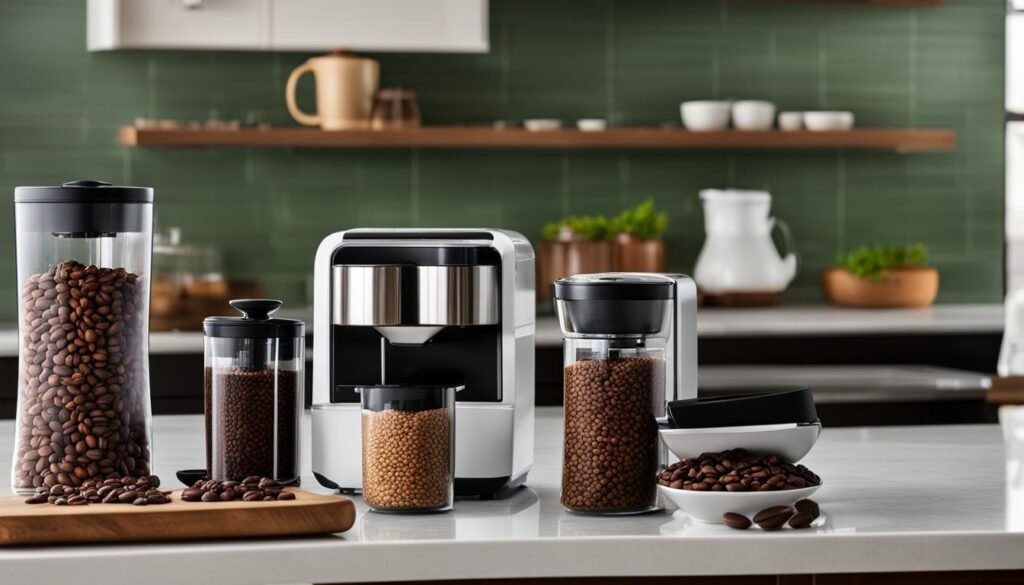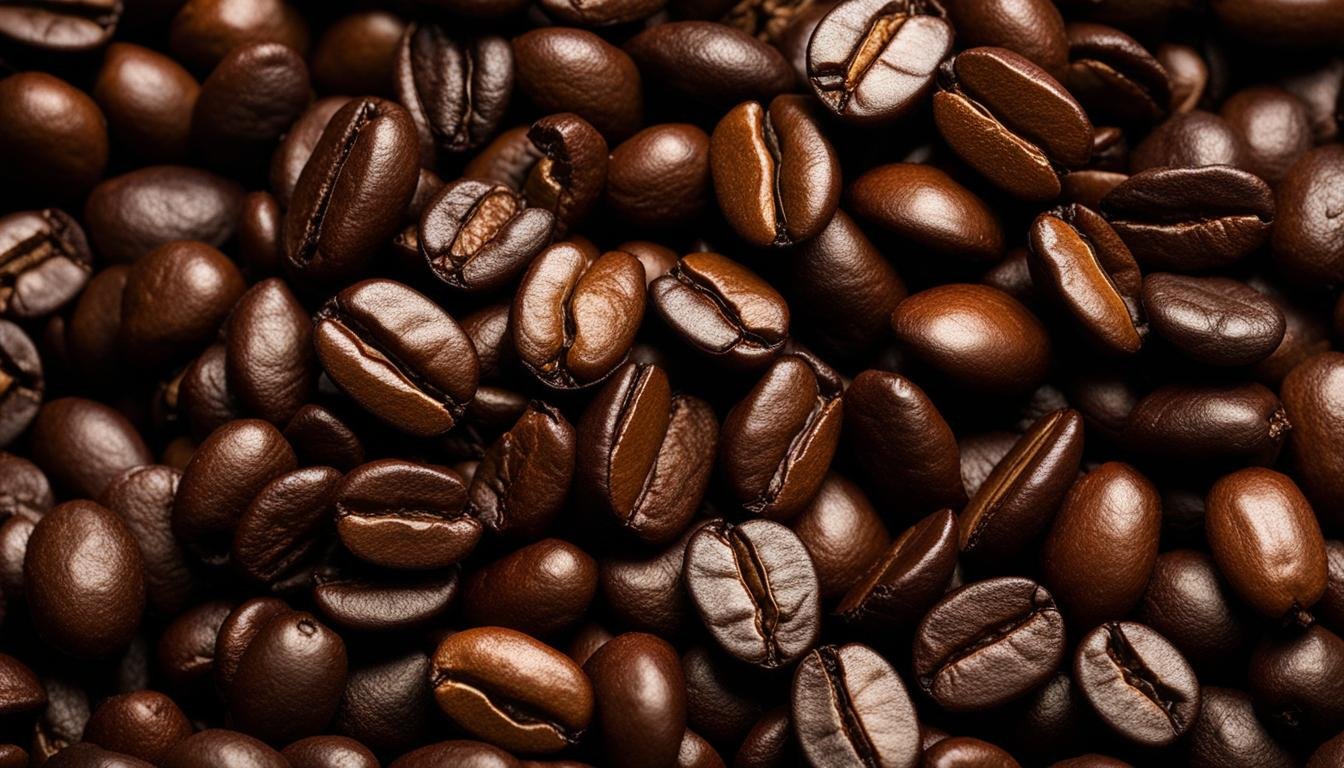Are you a coffee lover who wants to savor every cup of joe to the fullest? Then you may be wondering, do coffee beans expire? We’re here to shed light on this topic and provide you with essential information to keep your coffee beans fresh and delicious. So, let’s dive in!
Coffee beans do expire, and although drinking coffee made from expired beans may not be harmful, it will likely not taste fresh and delicious. The rate at which coffee beans expire can vary based on factors such as roast level, storage method, and bean form.
Green coffee beans, which are unroasted, can stay fresh for up to a year when stored properly. Roasted coffee beans, on the other hand, have a shorter shelf life and can start to lose flavor within weeks of being opened. Storing coffee beans in an airtight container, away from light, extreme temperatures, and humidity, can help to prolong their freshness. It’s also important to note that pre-ground coffee expires faster than whole beans, so it’s best to grind coffee right before brewing for maximum freshness.
Key Takeaways:
- Coffee beans do expire, affecting the taste of your brew.
- Green coffee beans have a longer shelf life compared to roasted beans.
- Proper storage in an airtight container preserves coffee bean freshness.
- Pre-ground coffee expires faster than whole beans.
- Grind coffee right before brewing for the freshest cup.
Factors Affecting Coffee Bean Expiration
When it comes to the expiration of coffee beans, several factors come into play. Understanding these factors can help you better preserve the freshness and flavor of your coffee. Here are the key elements that can affect the expiration of coffee beans:
Roast Level
The roast level of coffee beans plays a significant role in their expiration date. Darker roasts tend to have a shorter shelf life compared to lighter roasts. This is because the oils released during the roasting process in darker roasts can lead to faster degradation and loss of flavor. If you prefer a longer-lasting supply of fresh coffee, opting for lightly roasted beans may be a better choice.
Storage Method
The way you store your coffee beans can greatly influence their expiration. To prolong their freshness, it’s essential to store coffee beans in an airtight container. This prevents oxygen from accelerating the oxidation process. Additionally, keep your beans away from light, as UV rays can break down the oils and result in staleness. Moisture is another enemy of coffee beans, so ensure your storage area is dry to prevent mold growth.
Bean Form
The form of coffee beans, whether whole or ground, can also impact their expiration. Ground coffee has a larger surface area, which exposes it to more air and accelerates the oxidation process. As a result, ground coffee expires faster compared to whole beans. If you want to extend the shelf life of your coffee, it’s best to grind the beans right before brewing. This way, you can ensure maximum freshness and flavor in every cup.
By considering these factors and taking the necessary steps to preserve the quality of your coffee beans, you can enjoy a consistently delicious cup of coffee, brimming with aroma and flavor.
How to Properly Store Coffee Beans for Maximum Freshness

Properly storing coffee beans is essential to preserving their freshness and ensuring a flavorful cup of coffee every time. Follow these simple tips to keep your coffee beans at their best:
1. Use an Airtight Container
Invest in a high-quality airtight container to store your coffee beans. Oxygen is the enemy of freshness and can cause the beans to go stale quickly. By keeping them in an airtight container, you can prevent exposure to air and extend their shelf life.
2. Control the Storage Temperature
Temperature plays a crucial role in maintaining the quality of coffee beans. It’s best to store them in a cool and dry place, away from direct sunlight and heat sources. Ideally, aim for a storage temperature below room temperature to slow down the oxidation process and preserve the beans’ flavors.
3. Manage Moisture Levels
Moisture can be detrimental to coffee beans, causing them to deteriorate and potentially grow mold. To keep moisture at bay, avoid storing your beans in the refrigerator or freezer as the temperature fluctuations can introduce condensation. Instead, choose a dry pantry or cupboard for storage.
4. Protect from Light Exposure
UV rays can break down the oils in coffee beans, leading to staleness and a loss of flavor. To protect your beans from light exposure, store them in a dark and opaque container or keep them inside a pantry or cupboard. This will help to preserve their aromatic properties and ensure a more enjoyable coffee experience.
By following these coffee bean storage tips, you can keep your beans fresh and aromatic for a longer period. Remember, the key factors to focus on are using an airtight container, controlling the storage temperature, managing moisture levels, and protecting the beans from light exposure. With proper storage, you can savor the full flavor and aroma of your coffee beans every time you brew a cup.
The Shelf Life of Coffee Beans vs Ground Coffee

When it comes to the shelf life of coffee, the form in which it is stored can make a significant difference. Coffee beans generally have a longer shelf life compared to ground coffee. Whole beans can stay fresh for up to nine months if stored properly, making them a great option for those who prefer to grind their coffee just before brewing.
On the other hand, ground coffee typically retains its freshness for only one to two weeks. This is because ground coffee has a larger surface area exposed to air, moisture, and light, which can accelerate the oxidation process and lead to stale flavors.
To maximize the shelf life of ground coffee, it’s essential to store it in an airtight container to prevent exposure to oxygen. This will help maintain the coffee’s freshness for a longer period. Additionally, grinding coffee right before brewing can ensure the best flavor and aroma, as the natural oils and flavors are preserved until the last moment.
Factors Affecting Coffee Freshness
- Surface area: Ground coffee has a larger surface area exposed to air, moisture, and light, leading to faster degradation of flavors compared to whole beans.
- Oxidation: Exposure to oxygen can cause coffee to go stale and lose its original flavor over time.
- Moisture: Humidity can lead to the growth of mold and spoil the coffee’s taste and aroma.
- Light exposure: UV rays can break down the oils present in coffee beans, resulting in a loss of flavor and freshness.
Preserving Coffee Freshness
To preserve the freshness of both coffee beans and ground coffee, it’s crucial to follow these tips:
- Store in an airtight container: Prevent oxygen from degrading the coffee by storing it in airtight containers, such as glass jars with a tight seal or specially designed coffee storage canisters.
- Avoid moisture: Keep coffee away from areas with high humidity, like the refrigerator or near the stove, as moisture can cause the beans or grounds to deteriorate and develop off-flavors.
- Protect from light: Store coffee in a dark place or use opaque containers to shield it from exposure to light, as UV rays can break down the oils and lead to staleness.
- Control temperature: Keep coffee beans or ground coffee in a cool and dry environment, away from extreme temperatures, to prevent the rapid degradation of flavors.
Does Coffee Really Expire? Signs of Expired Coffee

Coffee, like any other food product, does have an expiration date. The flavor and quality of coffee beans can deteriorate over time, leaving you with a less-than-satisfying cup of joe. But how can you tell if your coffee has expired? Here are some signs to look out for:
1. Stale Coffee:
One of the first indicators of expired coffee is staleness. Freshly roasted coffee beans have a rich, vibrant aroma and flavor. However, as the beans age, they lose their natural oils and become stale, resulting in a dull and flat taste. If your coffee lacks the usual freshness and brightness, it may be time to replace it.
2. Off-Flavors:
Expired coffee can develop off-flavors that are unpleasant to the palate. These off-flavors can range from musty or sour notes to a bitter or rancid taste. If your coffee tastes strange or off-putting, it’s a good indication that it has expired and should be discarded.
3. Mold Growth:
Mold growth is a clear sign that your coffee is no longer safe to consume. Coffee beans can develop mold when exposed to high levels of moisture or if they are stored in a humid environment. If you notice any signs of mold, such as fuzzy patches or unusual discoloration, it’s essential to dispose of the coffee immediately.
By being mindful of these signs, you can ensure that you always enjoy a fresh and delicious cup of coffee without any unwanted surprises. Remember, when it comes to coffee, freshness is key!
Conclusion
In conclusion, it is important to be aware that coffee beans do expire. The freshness of coffee beans can be affected by various factors such as the roast level, storage method, and the form in which the beans are stored. To ensure the maximum freshness of your coffee beans, storing them in an airtight container away from light, moisture, and extreme temperatures is essential.
By following proper coffee storage practices, you can prolong the shelf life of your coffee beans and maintain their flavor and aroma. It is recommended to grind coffee beans right before brewing for the freshest cup of coffee. Whole coffee beans generally have a longer shelf life compared to ground coffee due to their lower surface area.
To summarize, ensuring the freshness of your coffee beans is crucial for a quality cup of coffee. Proper coffee storage techniques, including using an airtight container and storing beans away from light and moisture, can help preserve their freshness. Remember, by taking care of your coffee beans, you can enjoy a delightful and aromatic coffee experience every time you brew.
FAQ
Do coffee beans expire?
Yes, coffee beans do expire. The rate at which they expire can vary based on factors such as roast level, storage method, and bean form.
What factors affect coffee bean expiration?
Factors that affect coffee bean expiration include roast level, storage method, and bean form. Darker roasts tend to expire faster, and ground coffee expires more quickly than whole beans.
How can I properly store coffee beans for maximum freshness?
To store coffee beans for maximum freshness, use an airtight container, keep them away from light, moisture, and extreme temperatures, and store them at a temperature below room temperature.
What is the shelf life of coffee beans vs ground coffee?
Whole coffee beans can stay fresh for up to nine months if stored properly, while ground coffee typically retains its freshness for only one to two weeks.
How can I tell if my coffee is expired?
Signs of expired coffee include a change in color, loss of aroma, presence of mold or foreign particles, dampness or clumping, and the presence of pantry insects.
Does coffee really expire?
Yes, coffee does expire. While drinking coffee made from expired beans may not be harmful, it will likely not taste fresh and delicious.

Leave a Reply